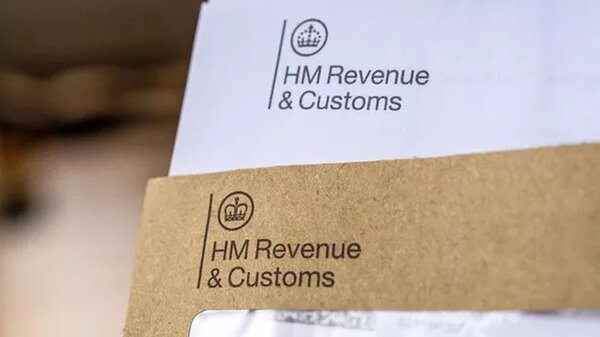Straight to the Point
Corporation Tax is a tax levied on the profits of businesses in the UK. The amount of tax to be paid depends on the profit made by the company. Directors are responsible for ensuring that accurate financial documents and accounts are maintained, as these are crucial for calculating the correct amount of tax payable.
Companies must submit a CT600 file to Companies House within 9 months of the financial year end. This file includes detailed accounts and tax computations. Failure to submit the CT600 file on time can lead to late filing penalties and potential lost revenue. These penalties can add up quickly, making it essential for companies to stay on top of their filing obligations.
What happens if you miss your corporation tax deadline?
Missing your corporation tax payment deadline isn’t just a small oversight - it can seriously hurt your business finances. Even a short delay can trigger penalties that grow over time, adding unnecessary pressure to your cash flow.
HMRC takes a firm stance on late payments. The longer you leave your tax unpaid, the more you’ll end up owing through both penalties and interest charges.
Understanding how these penalties work is essential for any business owner. Missing the deadline can result in the following penalties, which escalate over time. Repeated late tax return submissions can lead to increasing penalties and significant financial repercussions.
Let’s look at what happens when you miss a corporation tax deadline, and how you can avoid these costly mistakes.

What exactly are corporation tax late payment penalties?
Corporation tax late payment penalties are charges HMRC applies when you don’t pay your tax bill on time. Ensuring an accurate return is crucial to avoid penalties, as your payment must reach HMRC by the due date - typically 9 months and 1 day after your accounting period ends.
These penalties are calculated as a percentage of your unpaid tax. They start to build up from the day after your payment deadline passes, with no initial grace period to rely on.
HMRC applies these penalties automatically once you miss your deadline. There’s no warning system - the clock starts ticking immediately, which is why vigilance with tax deadlines is crucial.
It’s worth noting that late payment interest is charged separately from penalties. This means you’ll be paying extra on both fronts if you miss your deadline, creating a double financial impact.
Penalty Calculation
The penalty for late payment of Corporation Tax is a combination of fines and interest charges imposed by HMRC. The extent of the penalty depends on how late the payment is and the sise of the business. Penalties are calculated based on the amount of unpaid tax, the accounting period, and the company’s overall tax liability.
For instance, if a company misses the payment deadline, HMRC will start by adding a 5% penalty on the unpaid tax after 30 days. If the tax remains unpaid after 6 months, another 5% penalty is added, and a further 5% penalty is applied if the tax is still unpaid after 12 months. Interest charges also accrue daily, increasing the financial burden.
To avoid these penalties, companies should ensure timely payment of their Corporation Tax or arrange a Time to Pay agreement with HMRC. The penalty notice issued by HMRC will outline the amount of the penalty and the due date for payment.

How much will HMRC charge for late corporation tax payments?
The penalty system works on a sliding scale that gets more expensive the longer you delay:
If you pay within 30 days of the deadline, there’s no penalty (but interest still applies).
After 30 days, HMRC adds a 5% penalty on your unpaid tax.
If your tax remains unpaid after 6 months, another 5% penalty is added.
And if you still haven’t paid after 12 months, a further 5% penalty is applied.
These penalties can add up quickly. For example, if you owe £10,000 in corporation tax and don’t pay for over a year, you’ll face £1,500 in penalties alone - not counting the interest that continues to accrue daily. If your payment is several months late, the penalties increase significantly, leading to higher charges and additional complications.
Remember, these penalties apply even if you’ve filed your tax return on time. It’s the payment that matters here, regardless of your filing compliance.
When might HMRC waive corporation tax penalties?
HMRC may consider cancelling penalties if you have what they call a “reasonable excuse” for late payment. This provides some flexibility in genuine cases of unavoidable delay.
What counts as reasonable? Things like serious illness, natural disasters, or HMRC system failures might qualify. Unfortunately, simply having financial difficulties usually doesn’t count as a reasonable excuse.
Failing to notify HMRC about changes in taxable income can result in a notify penalty. This penalty is calculated based on potential lost revenue due to delayed reporting. However, HMRC may reduce the penalty if you communicate promptly and provide a reasonable excuse.
HMRC expects businesses to plan for their tax obligations. If something does prevent you from paying on time, you must sort it out as soon as you reasonably can.
Having evidence to back up your claim greatly improves your chances of success. Keep records of anything that might support your case, including correspondence, medical documents, or other relevant proof.
Setting up a Time-to-Pay arrangement before your deadline can prevent penalties altogether. This shows HMRC you’re being proactive about your tax situation rather than ignoring your obligations.

Time to Pay Arrangements
A Time to Pay arrangement is an agreement between a company and HMRC to pay the outstanding tax liability in instalments. This can be a lifeline for companies struggling to pay their Corporation Tax liability in full. To set up a Time to Pay arrangement, the company must contact HMRC and provide detailed information about their financial situation, including income, expenditure, and assets.
HMRC will review the company’s proposal and, if deemed reasonable, agree to a payment plan. It’s crucial for the company to ensure they can afford the instalments and make payments on time to avoid additional penalties. A Time to Pay arrangement can help companies avoid enforcement actions, such as the seisure of assets, and provide a more manageable way to settle their tax liability.
By proactively managing their tax obligations and communicating with HMRC, companies can avoid the severe consequences of unpaid Corporation Tax and maintain their financial health.
How can you appeal against corporation tax penalties?
If you believe a penalty is unfair, you can appeal within 30 days of receiving the penalty notice. This timeframe is strict, so act promptly if you feel you have grounds for appeal.
Your appeal needs a clear explanation of why you think the penalty should be cancelled, along with any supporting evidence you have. Be specific about your circumstances and how they relate to HMRC’s reasonable excuse criteria. For instance, if you are appealing an inaccuracy penalty, you must clearly explain the nature of the error, the quality of your disclosure, and your level of cooperation with HMRC.
Use HMRC’s official appeal process, which can be done online or by post. Make sure you follow their guidelines carefully to avoid having your appeal rejected on procedural grounds.
If your initial appeal is rejected, you can ask for an HMRC review. This gives you another chance to make your case before considering more formal options.

What steps can prevent future late payment penalties?
The best way to handle penalties is to avoid them completely:
Mark your payment deadlines clearly in your financial calendar. Don’t rely on memory!
Set up multiple reminders - 30 days, 14 days and 7 days before deadlines can work well.
Keep enough cash reserves specifically for tax payments. Treat this money as already spent.
Good record keeping is essential to avoid penalties. Ensure all your financial records are accurate and up-to-date.
If you think you might struggle to pay, contact HMRC early. They’re often more flexible if you reach out before the deadline.
Larger companies should consider quarterly instalment payments to spread the cost.
Double-check your payment details - using incorrect bank details or reference numbers can cause delays that trigger penalties.
I once worked with a small business that had set aside their corporation tax but forgot to actually make the payment. Despite having the funds, they incurred penalties simply through administrative oversight. Now they use automated calendar alerts that go to multiple team members.
Don't let corporation tax penalties damage your business
Late payment of Corporation Tax can lead to interest charges and potential penalties, which can quickly add up if not addressed promptly.
Staying on top of payment deadlines and understanding how interest is applied can help avoid unnecessary costs.
If a payment is missed, acting quickly to settle the amount and communicate with HMRC can prevent further financial consequences.











